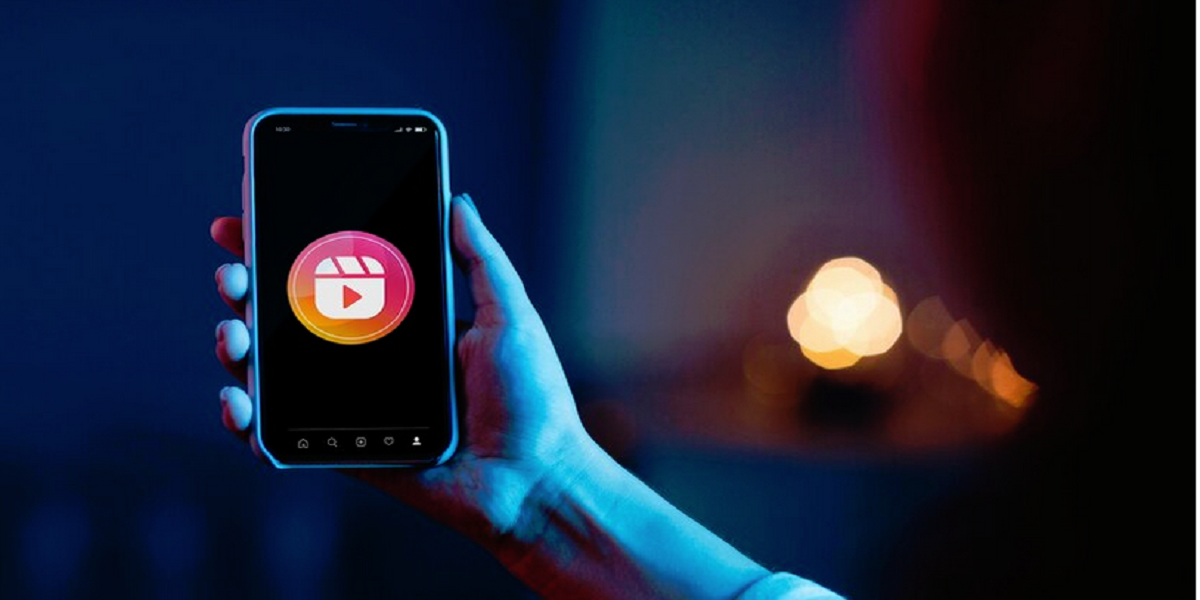
The Future of B2B Lead Generation: Key Trends to Watch
- By Manvi Shah
- 10-03-2023
- Trends
Lead generation has undergone tremendous development in recent years. Since the COVID-19 epidemic, there has been a quick change to digital modes of connection, which has raised consumer awareness and allowed decision-makers to look for answers on their own without getting in touch with salesmen.
New technology and solutions are becoming available to marketers, allowing them to improve lead generating processes and streamline them.
With the use of these tools, salespeople and marketers may precisely identify potential customers by personalizing their advertising to discover contacts easily. We anticipate that this will improve both the amount and quality of leads produced by a business.
In addition, businesses need to concentrate more on the incentives they offer if they want leads. Businesses will also look for "lead insight" over a longer period of time. Instead of offering a single giveaway and collecting emails, businesses will use a variety of promotions, incentives, and trackable behaviors over time to improve their lists.
What is B2B Lead Generation?
Business-to-business (B2B) lead generation is the process of locating, luring and nurturing prospective clients (leads) for B2B goods or services. The conversion of these leads into actual paying customers is the ultimate objective of B2B lead generation.
Lead generation is a crucial task that allows businesses to create a steady stream of potential clients in the B2B setting. This is a result of the typical lengthier and more complicated B2B sales cycles compared to B2C sales cycles. As a result, it's crucial to find and nurture high-quality leads that are most likely to become clients.
Why is B2B Lead Generation Important?
As we head into 2023, B2B lead generation remains a critical component of any successful business strategy. Whether you're a small startup or a large enterprise, the ability to identify and cultivate high-quality leads can make all the difference in your ability to grow and succeed.
Building a sustainable pipeline of potential customers
One of the most important reasons why B2B lead generation is crucial in 2023 is that it enables companies to build a sustainable pipeline of potential customers. By identifying and nurturing high-quality leads, businesses can ensure that they have a steady stream of potential customers that can fuel growth and success over the long term.
Differentiating from the competition
In today's highly competitive business landscape, it's more important than ever for companies to differentiate themselves from their competitors. B2B lead generation can help businesses achieve this by creating highly targeted marketing campaigns that focus on specific industries, companies, or decision-makers.
By tailoring your message and value proposition to the specific needs and pain points of your target audience, you can position your company as a unique and valuable solution that stands out from the competition.
Adapting to changing customer preferences
In 2023, businesses must be able to adapt quickly to changing customer preferences and market conditions. B2B lead generation enables companies to do this by continually monitoring and optimizing their marketing campaigns based on real-time feedback and data.
For example, if a particular marketing campaign is not generating the desired results, companies can quickly pivot and try a different approach. This agility and flexibility are crucial in today's rapidly changing business environment.
Maximizing marketing ROI
Finally, B2B lead generation is important in 2023 because it enables companies to maximize their marketing ROI. By focusing on highly targeted campaigns that are tailored to the specific needs and pain points of their target audience, businesses can ensure that they are getting the most value from their marketing spend.
Moreover, by continually monitoring and optimizing their campaigns, companies can identify areas where they can improve efficiency and reduce waste, further increasing their marketing ROI.
These conditions have led to the emergence of new lead generation trends. Data-based approaches, omnichannel outreach, and automation tools have all become part of the regular B2B sales process.
Let's look at the best lead generation trends you should research in 2023 and beyond.
Key Future Trends of B2B Lead Generation to Watch in 2023
Platforms for customer data
Building a data-driven lead generating strategy requires more than just an understanding of the value of data. Using client data platforms is one of the most recent methods for managing the massive amount of data available (CDPs).
Simply put, CDP gathers data from several sources and combines it in one location to anonymously generate a consumer profile.
The information can be gleaned via CRM systems, a person's social media engagement, website behavior, etc. In essence, CDP holds all the data that customers leave behind when interacting with various platforms online, giving you invaluable insights to improve your lead generation system.
Account-Based Marketing (ABM)
ABM is a marketing strategy that targets specific accounts, rather than trying to reach a broad audience. It involves creating personalized content and messaging for each account and tailoring your approach to their unique needs and pain points. ABM has been shown to be highly effective in generating leads and closing deals, and it's likely to become even more popular in the years to come.
According to Gartner, a B2B buying group typically consists of six to ten decision-makers, which makes targeting and personalization much more difficult. The solution to this problem is account-based marketing (ABM), which targets an entire account made up of numerous decision-makers rather than contacting each one separately.
Since 2016, ABM usage has increased by a factor of two (47%) which only serves to highlight its value and efficacy in B2B lead generation.
Making wise targeting choices increases your chances of identifying and connecting with prospects who best suit your ICP and who may have a pressing need for your product. Among these tactics, you should keep in mind account targeting, retargeting, and pre-targeting in 2023.
Actionable insight: To leverage ABM, start by identifying your ideal customer profile and then create personalized messaging and content that speaks to their specific needs and challenges. Use targeted advertising and email campaigns to reach them where they are.
Data-driven lead generation
The increasing significance of data and analytics for B2B decision-making processes is one of the most noticeable changes of the previous few years. Forbes states that "large businesses with huge funds are no longer the only ones using analytics”.
Maintaining high-quality data is important for a number of reasons, including the ability to make more informed strategic decisions about lead generation and sales processes, improve team productivity, and reduce the costs of the company's core operations.
The majority of C-level executives (95%) stress the need for a data-based strategy in B2B firms.
Data is the lifeblood of modern marketing, and it's becoming easier than ever to gather and analyze data on your target audience. In the future, businesses that are able to leverage data to create targeted, personalized marketing campaigns will be the ones that succeed.
Actionable insight: Use data to inform your marketing campaigns, and be sure to track your results to identify what's working and what's not. Use A/B testing and other techniques to optimize your campaigns for maximum effectiveness.
Sales Specialisation
A single salesperson is no longer able to do all the sales-related responsibilities by themselves as the sales process becomes more complex. Each of these steps—prospecting, lead generation, outreach, and product discovery calls—requires qualified specialists. Because of this, the market saw the emergence of various new lead generation positions. All of these professionals—researchers, copywriters, campaign strategists, SDRs, and BDRs—need to be proficient in a variety of specialties.
The sales specialization trend will persist among B2B firms. Most rapidly expanding companies have adopted sales specialization as a core strategy of their go-to-market. And the reason for that is that team member who play different roles can actually accomplish each duty in that chain better than a single person can.
Social media & Omnichannel Outreach
Lead generation is first and foremost about opening a business conversation with the appropriate person. In recent years, the strength of digital self-serve channels and remote human connections has increased, and in 2023, omnichannel outreach will rank among the top trends as more and more customers choose to stick with this approach. You dramatically increase your chances of starting a conversation with a qualified prospect by concurrently distributing your message over several channels.
Along with that, interactions on social media platforms, cold emails, and phone calls are also increasing. You can coordinate all of these outbound channels at once with a powerful sales cadence tool to maximise the effects of your outreach.
Social media is no longer just for B2C marketing. In fact, more and more B2B companies are using social media to connect with their target audience and generate leads. Platforms like LinkedIn are particularly effective for B2B lead generation, as they allow you to target specific industries, job titles, and other demographics.
Actionable insight: Use social media to connect with your target audience and share valuable content that addresses their pain points and challenges. Be sure to engage with your audience and respond to their comments and questions to build relationships and establish trust.
Influencer Marketing
Influencers are people or companies who have a sizable following and are regarded as experts in their field.
Influencer marketing, often known as getting an influencer to promote your good or service, is a terrific method to broaden your audience and boost engagement. Also, it can save a tremendous amount of time because influencers already have a large audience and have their trust.
Every platform has influencers, so you can simultaneously produce leads on Instagram, LinkedIn, Twitter, YouTube, podcasts, and other platforms like those mentioned above.
There are also many "micro-influencers" with 1K to 100K followers if money is an issue. This is an excellent place to start because these followers have a stronger effect than those of bigger brands and tend to participate more frequently.
AI and machine learning applications
As AI and machine learning technologies continue to advance, they will become increasingly important in B2B lead generation. These technologies can help businesses automate tasks like lead scoring and qualification, allowing sales teams to focus on the most promising leads.
Actionable insight: Explore AI and machine learning tools that can help you automate lead generation tasks and free up your sales team to focus on building relationships with qualified leads.
Personalization
Personalization is becoming increasingly important in B2B marketing, as businesses look for ways to stand out in a crowded marketplace. By tailoring your marketing approach to each individual lead, you can build stronger relationships and increase your chances of closing a sale.
More commercials than ever are being seen by consumers online. Personalization is therefore essential if you want to stand out. If you provide anything less than what your audience expects—tailored, individualized messaging and content—they will certainly lose interest.
According to data, 60% of marketers currently believe that personalization is a critical technique for lead creation and obtaining more high-quality leads.
Use a unique and appealing subject line for your LinkedIn message to increase the number of responses you receive.
Personalization makes each member of your audience feel special and connected to your brand. By developing thorough client profiles and segmenting and tailoring their experience in multiple ways, you may greatly increase ROI and engagement.
Actionable insight: Use personalization to create targeted, relevant marketing campaigns that speak directly to your target audience's pain points and challenges. Use data to inform your approach, and be sure to track your results to identify what's working and what's not.
State of Offline B2B Sales Against Online B2B Sales
Salespeople spend 50% of their time with prospects who will never become customers. The power of AI is quickly democratizing the ability of all businesses to recognize the individuality of each prospect and utilize tailored strategies to convert them into qualified leads.
Soon, lead conversion rates will be ten times higher than they are now, according to businesses. The methods by which businesses find, develop, and evaluate the calibre of their leads will soon be dominated by cohort vintage analysis and other analytical decision-making tools.
Brand budgets will be allocated more heavily to owned lead generation properties. When technology develops, vendors will be able to employ match back and tracking instead of forms.
Final Thoughts
B2B lead generation remains a crucial strategy for businesses in 2023. The future of B2B lead generation is all about using data, personalization, and technology to create targeted, effective marketing campaigns that speak directly to your target audience.
By staying ahead of these key trends and embracing new technologies and strategies, you can set your business up for success in the years to come.
By building a sustainable pipeline of potential customers, differentiating from the competition, adapting to changing customer preferences, and maximizing marketing ROI, companies can position themselves for growth and success over the long term.
Recent blog

Crafting Eye-Catching Instagram Reels In Just 9 Easy Steps
Social Media | 25-04-2024.png)
Boost Sales and Conversions with Shopify's New AI-Powered Semantic Search
E-commerce | 24-04-2024




